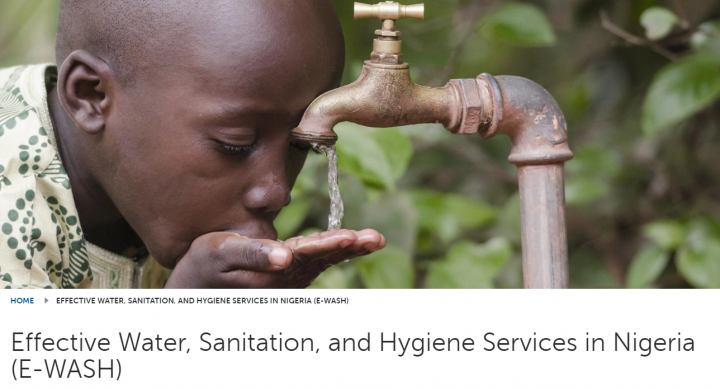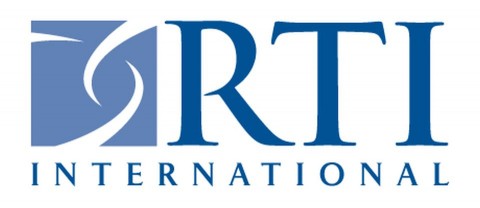Effective Water, Sanitation and Hygiene Services in Nigeria (E-WASH)
2018 - 2023 • RTI International
Purpose
Working with state water boards to deliver better urban services to the Nigerian people
Activities
In 2018, the U.S. Agency for International Development contracted us to implement the Effective Water, Sanitation and Hygiene Services (E-WASH) program to improve the availability of clean water and sanitation in Nigeria’s poorest urban neighborhoods. We expect to improve water delivery to 500,000 households by boosting the productivity and efficiency of SWBs, many of which are balanced precariously between top-down government directives and an ongoing responsibility to deliver services to millions of customers.
With E-WASH, we are taking a four-pronged approach to improving the viability of SWBs. The components of this approach include:
(1) Working with state governments and SWBs to build common understanding via facilitated, mutually agreed-upon Service Improvement Plans (SIPs)
(2) Making SWBs financially and operationally viable through comprehensive technical assistance and by connecting them to private-sector actors and successful utility operators, thus securing long-term funding and investment options
(3) At the state level, facilitating the creation or strengthening of regulatory oversight that will improve SWB transparency and accountability
(4) Engaging with civil organizations as advocates, as well as the donor community, to measure and adapt E-WASH activities, based on knowledge sharing and continuous learning.
Images

Image: E-WASH
Countries of activity
Location of main activity
Objectives
To improve the availability of clean water and sanitation in Nigeria’s poorest urban neighborhoods.
Contact information
Barbara Rossmiller
Login to see the e-mail-adress of the contact person.
Lauryn Marcus
Login to see the e-mail-adress of the contact person.
Marina Simic
Login to see the e-mail-adress of the contact person.
Filter tags
Capacity development Cities Enabling environment and institutional strengthening North America Peri-urban Political processes and institutional aspects Public awareness, advocacy and civil society engagement Specific to one or several countries Sub-Saharan Africa United States government University, education or research institution Urban informal settlements (slums)
Links
RTI International
Research Triangle Park
United States
Uploaded by:
Elisabeth von Muench (Elisabeth)















